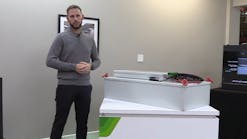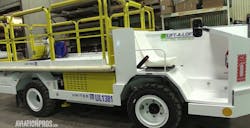Tampa International Airport will relocate its taxicab and other ground transportation pickup spots on both sides of the main terminal by January to further relieve vehicle congestion.
Taxis, shuttles for parking, hotel and off-airport rental car facilities and coaches with cruise passengers from the Port of Tampa will load and unload in new "ground transportation centers," airport Director Louis Miller said Thursday in a preliminary review of plans to the Hillsborough County Aviation Authority.
Preparations for the new commercial vehicle procedures will begin once a new rental car-parking garage adjacent to the Airside D shuttle is completed about Nov. 15. Construction crews are scheduled to demolish the vacant Airside D by August 2007.
The airport has successfully reduced curbside congestion in recent months with a number of initiatives. Those include one-hour free parking in the short-term parking garage, a free cell-phone lot where greeters can wait for a call from people arriving on flights, and increased traffic enforcement during peak periods.
In addition, the airport completed improvements to its main terminal rental car return system that previously backed up during the heavy spring travel season.
However, Tampa International, which handled 19 million passengers in 2005, expects to get an additional 6 million annual passengers before a new North terminal is built in 10 years or so.
"That means current facilities will become more crowded," Miller said.
The goal of the curbside management program was to reduce the amount of time vehicles wait outside the main terminal from 10 minutes to between three and five minutes to eliminate gridlock.
"In May, the average blue side dwell time was 55 seconds and the red side was 56 seconds," Miller said.
Aviation officials also have addressed passenger flow inside the main terminal with a variety of space renovation and security facility projects in the airport's master plan update.
However, Miller has suggested a "wait and see" outlook toward testing the federal Registered Traveler Program, intended to give priority to frequent flyers willing to pay a monthly fee to go to the head of security lines.
"We need to implement programs for all passengers, not just a chosen few," Miller said.
Southwest Airlines and US Airways oppose the program, scheduled for further testing at as many as 20 airports this year despite an apparent decline in enthusiasm for the project.
Aviation board Chairman Stephen Mitchell, a Tampa lawyer , said he had changed his mind about favoring the Registered Traveler program since he learned airports might be held liable for lawsuits over security problem with screeners.
Copyright 2005 LexisNexis, a division of Reed Elsevier Inc. All rights reserved.
Terms and Conditions | Privacy Policy
News stories provided by third parties are not edited by "Site Publication" staff. For suggestions and comments, please click the Contact link at the bottom of this page.





